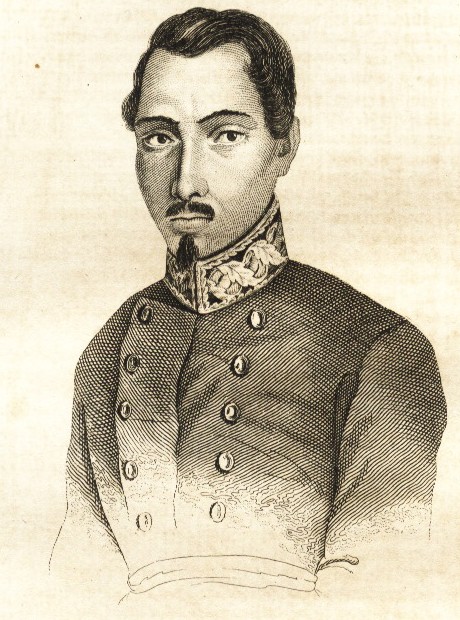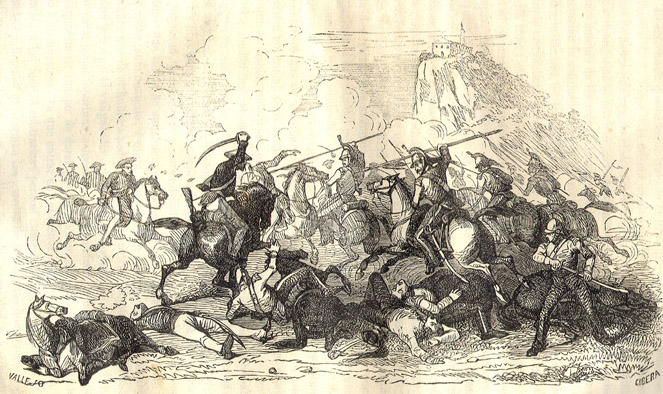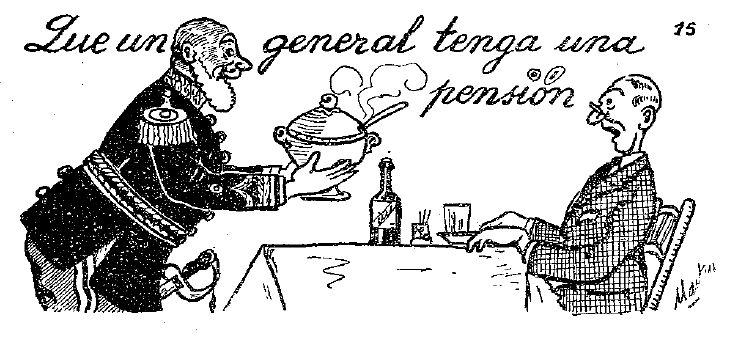
| Языки :: Испанский |
| Аудио |

 |
|
 |
|
43 |
Español |
Spanish |
|
Lección Quince (15) |
||
| Parece extraordinario | It seems extraordinary. | |
| 1 | Este anuncio me interesa personalmente, porque yo necesito una pensión o un hotel en Madrid para esta noche (1). | This advertisement interests me personally because I need a boarding house or a hotel in Madrid for this night. |
| 2 | Me sorprende también un poco; no ignoro que cada (2) país tiene sus costumbres; | (It) surprises me also a little : (I) am not ignorant (of the fact) that each country has its customs. |
| 3 |
pero me parece extraordinario que un general tenga (3) una pensión en sus horas libres. |
But (it) seems (to) me extraordinary that a general should take a boarding-house in his free hours. |
| 4 | Será (4) un general retirado, o quizá un general sud-americano, expulsado de su país después de una revolución... | (It) will be a retired general, or perhaps a South-American general, expelled from his country after a revolution... |
| 5 |
Además ¿qué quiere decir « 11 tercero »? Es un misterio.. once tercero... (5). |
Moreover, what does "11 third" mean? It is a mystery... eleven third... |
| 6 | ¡Caramba! ¡Estoy tonto! «Tercero» significa «piso tercero» ¡ y 11 es el número de la calle! | By Jove ! I am stupid! "Third" means 3rd floor, and 11 is the number of the street |
| 7 | ¡Claro! Y la calle se llamará «Calle del General Pardiñas». | (That's) clear! And the street will be called "General Pardiñas Street". |
| 8 | No tengo un plano de Madrid para asegurarme (6), pero voy a preguntar. | (I) have not a plan of Madrid to make [me] sure, but I am-going to ask... |
| EJERCICIOS | EXERCISE : | |
| 1 |
¿Qué quiere usted? ¿Quiere usted algo? - No quiero nada, gracias. |
What do you want? Do you want something? - I [do not] want nothing, thanks. |
| 2 | ¿Tiene usted tiempo mañana? | Have you time to-morrow? |
| 3 | Tengo todo el día libre; ¿por qué me lo pregunta usted? | (I) have all the day off [free]; why do you ask me [it]? |
| 4 | Porque mañana iré al campo; ¿quiere usted acompañarme? | Because to-morrow, (I) shall go to the country; will you accompany me? |
| 5 | ¡Caramba! había olvidado que debo purgarme. | By Jove! (I) had forgotten that (I) must take a purge [purge me]. |
| NOTES. | |
| 1 |
The advertisement: el anuncio (masc.);
this advertisement : este anuncio. |
| 2 | Cada, each, masc. and fem. : cada país, cada provincia. |
| 3 | Tenga : subjunctive of tener, to keep, have. |
| 4 |
The future is often used to express a supposition, as in English : he has not come : he will have missed the train. |
| 5 |
In además, moreover, you find más : more. |
| 6 | Remember : seguro : sure; seguramente : surely. |
|
Let us remind you : usted pregunta ; you ask ; ending a because the infinitive is in ar : preguntar. But usted tiene, you have; usted quiere, you will, want; infin. : tener, to have, keep, hold, and querer. to want, in er. They are two irregular verbs, as you can see by the introduction of i : tiene, quiere. It is not a matter of learning these forms by heart, but of getting used to them gradually. |
